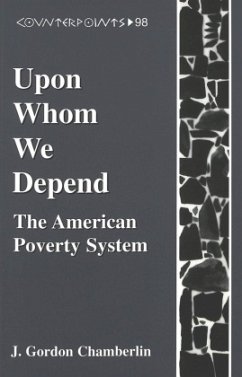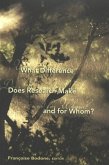Poverty is a fundamental and damaging feature of American culture that is ingrained in the structures, practices, and values of our institutions. An adequate understanding of the roles and functions of poverty requires the contributions of both the liberal arts and the social sciences and cannot be shunted off to social work.
Upon Whom We Depend challenges readers to examine their own ideas, beliefs, and attitudes, and to recognize how institutions can become instruments for overcoming the social arrangement by which poverty is perpetuated.
Upon Whom We Depend challenges readers to examine their own ideas, beliefs, and attitudes, and to recognize how institutions can become instruments for overcoming the social arrangement by which poverty is perpetuated.
«Dr. J. Gordon Chamberlin's essential argument is that America creates and sustains systemic poverty to subsidize the well-off. His original thinking turns upside-down the conventional view that 'the poor' are that way because of their own shortcomings.» (Charles E. Daye, Henry P. Brandis Distinguished Professor of Law, School of Law, The University of North Carolina at Chapel Hill)
«A fresh and different perspective on poverty from someone who understands the views of academia, those who help the poor and the poor themselves. Resources provided will be useful, especially to those who are just beginning to tackle this issue in the classroom.» (Bennett M. Judkins, Associate Professor of Sociology, Lenoir-Rhyne College, Hickory, North Carolina)
«A fresh and different perspective on poverty from someone who understands the views of academia, those who help the poor and the poor themselves. Resources provided will be useful, especially to those who are just beginning to tackle this issue in the classroom.» (Bennett M. Judkins, Associate Professor of Sociology, Lenoir-Rhyne College, Hickory, North Carolina)








